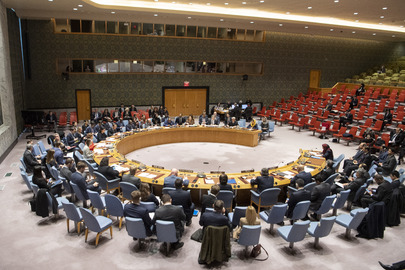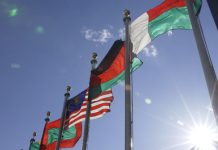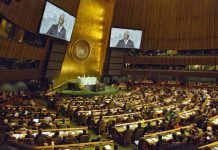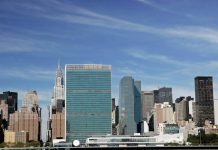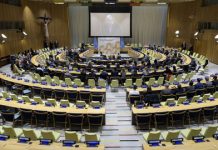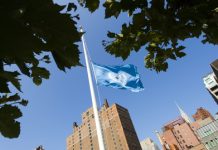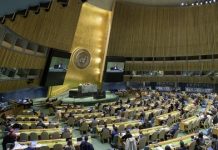“Africa is a continent of boundless energy and possibility. But for too long, the colossal injustices inflicted by enslavement, the transatlantic slave trade and colonialism have been left unacknowledged and unaddressed,” he said.
The United Nations has repeatedly said that slavery and the transatlantic slave trade constituted crimes against humanity, and the Secretary-General has repeatedly called for redress for these injustices.
Speaking to the Africa Dialogue Series — which is focused on the theme of justice through reparations — the Secretary-General noted that the movement for reparatory justice is gaining momentum around the world as reflected by the declaration of the Second Decade for People of African Descent, which runs through 2035.
The last decade, which ended in 2024, yielded tangible results, with over 30 Member States revising laws to better tackle racial discrimination. However, the Secretary-General noted that much work remains.
“We point to the poisoned legacies of enslavement and colonialism, not to sow division but to heal them,” he said.
‘Long shadow of colonialism’
Mr. Guterres underlined the entrenched nature of racism and exploitative systems, saying that these systems have disadvantaged African countries and people of African descent beyond the end of colonialism and enslavement.
“Decolonization did not free African countries, or people of African descent, from the structures and prejudices that made those projects possible,” he said.
In fact, when the United Nations was founded and many of the global structures established, some African countries were still colonies.
“When African countries gained their independence, they inherited a system built to serve others — not them,” the Secretary-General said.
The President of the General Assembly, Philémon Yang, underlined the importance of teaching this history through national curricula and monuments such as The Ark of Return at UN Headquarters.
“Knowledge of our true history can serve as a powerful compass in our onward march towards progress,” he said.
The Ark of Return, the Permanent Memorial to Honour the Victims of Slavery and the Transatlantic Slave Trade, located at the Visitors’ Plaza of UN Headquarters in New York.
Transforming ‘poisoned legacies’
To address the inequities of this system, the Secretary-General called upon the global community to take action on international financial systems which are burdening developing economies in Africa and the Caribbean. Specifically, he emphasized the importance of restructuring debt systems which are “suffocating” these countries’ economies.
Previous UN reports have noted that some poor countries spend more on debt repayments than they do on health, education and infrastructure combined
Mr. Guterres also called for massive investments into clean energy infrastructure in Africa which has been deeply impacted by climate change.
“African countries did not cause the climate crisis. Yet the effects of our heating planet are wreaking havoc across the continent,” he said.
He also reiterated his call for the establishment of a permanent Security Council position for an African Member State.
Mr. Yang, the General Assembly President, underlined the urgency of the Secretary-General’s remarks, urging member states to act imminently.
“Now is the moment to turn recommendations into rights, apologies into action and aspirations into accountability.”
Source of original article: United Nations (news.un.org). Photo credit: UN. The content of this article does not necessarily reflect the views or opinion of Global Diaspora News (www.globaldiasporanews.net).
To submit your press release: (https://www.globaldiasporanews.com/pr).
To advertise on Global Diaspora News: (www.globaldiasporanews.com/ads).
Sign up to Global Diaspora News newsletter (https://www.globaldiasporanews.com/newsletter/) to start receiving updates and opportunities directly in your email inbox for free.


